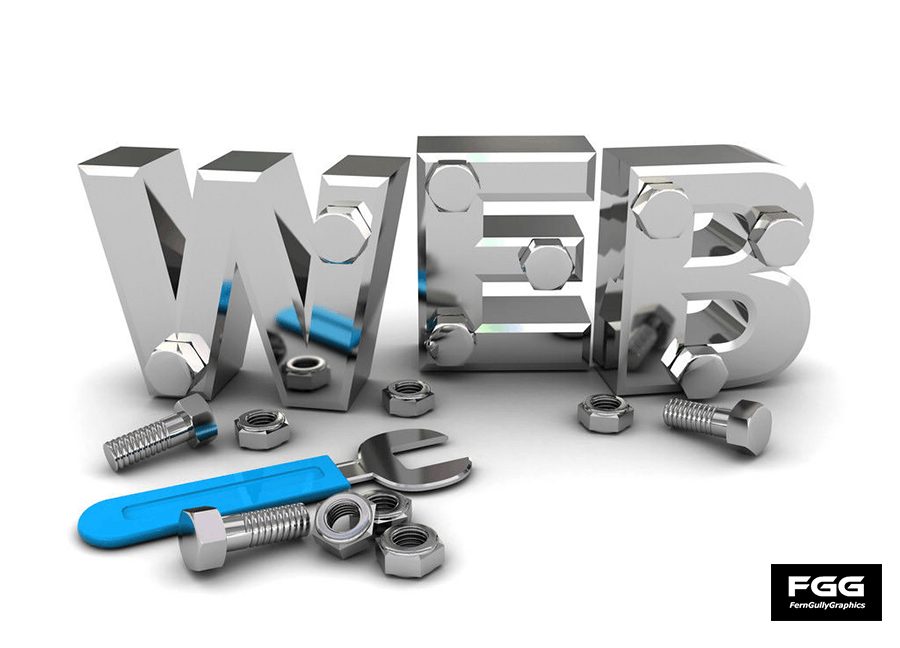Are you looking to build your first website? Today, there are many options which allows people to build/manage their own website but frankly, so much information can get overwhelming. To simplify this process, Forward Web has put together this guide, which provides 7 basic fundamentals for creating a great website!
Effective web design is judged by the users of the websites (not the website owners) therefore, it is important to consider the many factors that affect the usability of a website because it’s not just about how good your site looks, but functionality plays a major role.
Websites that are not designed properly will experience poor performance and have less than favorable Google Analytics metrics such as high bounce rates, low pages per visit, low time on your site and low conversations. What makes a website design ideal? Let’s take a look at the 7 basic fundamentals, which consists of making yous site not only aesthetically pleasing but is also easy to use, effective and engaging:
1st Basic Fundamental: Purpose
What is the purpose of your website? For example, is your website intended to provide information, some type of interaction or entertainment? Or perhaps your website is designed to transact with your business? A good web design always caters to the needs of the end user and each page of your website must have a clear purpose in order to fulfill your website user’s specific needs (in the most effective way possible).
2nd Basic Fundamental: Communication
One of the most important aspects of your website is effective communication. The internet was created to provide information and internet users want information quickly, therefore, it is imperative to communicate clearly (making sure your information is easy to read and comprehend). With this in mind, some effective tactics you can incorporate into your design includes: organization through the use of headlines and sub headlines, use bullet points instead of long run-on sentences, and being concise (keep it short and to the point).
3rd Basic Fundamental: Navigation
Navigation is essential to the success of your website because it determines how easily people can take action and move around your website. We recommend incorporating a logical page chain of command, using bread crumbs, designing clickable buttons, and following the “three click” rule (which means that users are able to find the information they are looking for within three clicks).
4th Basic Fundamental: Images
We’re sure you’ve heard the expression “a picture can speak a thousand words” and it could not be any truer when it comes to web development. Choosing the right images for your website is going to help with brand positioning and connecting with your target audience. Make sure to use high quality professional photos, and if you don’t have access to any of them, consider purchasing stock photos to improve the look and quality of your website. Another thing you could consider is using graphics, videos and infographics because these can be even more effective at communicating than the most well written piece of text.
5th Basic Fundamental: Typefaces
When considering fonts, Arial, Verdana and Sans Serif are generally easiest to read online. As far as sizes go, ideally, 16px is a font size that is easy to read. We also recommend sticking to a maximum of 3 typefaces in a maximum of 3 point sizes to keep your design streamlined.
6th Basic Fundamental: Color Choices
You might not have considered this to be one of the basic fundamentals, but a carefully selected color palette can really go a long way to enhance the user’s experience. To create balance and harmony, using complimentary colors is key! Contrasting colors (for the text and background) makes it easier for the user to read the content. And while vibrant colors add life and can create emotion, they should be used sparingly (just a pop of color) such as for buttons and call to actions. Lastly, if you are aiming for a modern and uncluttered look, consider using white or negative space, it is very effective. Who knew colors could do so much for your site!
7th Basic Fundamental: Mobile Friendly
If you do not already know, 80% of all web traffic now comes from mobile devices, thus, including a full mobile version of your self storage facility website is a necessity. Nowadays, it is very common for users to access websites from multiple devices with multiple screen sizes, and for that reason it is imperative to consider whether or not your website is mobile friendly. If your website is not currently mobile friendly, you can approach this matter in two ways: you can either re-develop your website in a responsive layout so that it can accommodate to different screen widths or you can build a separate website dedicated specifically to be optimized for mobile users. As you can see, this is a very important factor to consider!
Knowing and understanding the basic fundamentals of creating a great website is the first step and now, you can build your first website successfully using this guide, just follow these steps. If you are having a difficult time setting up your website, do not have the time or you would like help improving the website you or someone else developed, contact Forward Web and we will be happy to discuss your project and answer any questions you may have.







